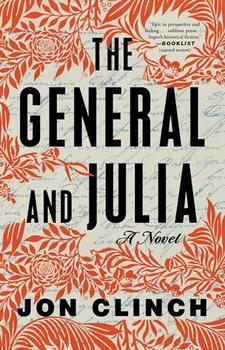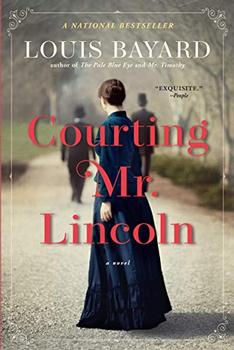Summary | Excerpt | Reviews | Beyond the book | Read-Alikes | Genres & Themes | Author Bio

A Novel
by Jon ClinchUlysses S. Grant reflects on the crucial moments of his life as a husband, a father, a general, and a president while writing his memoirs and reckoning with his complicated legacy in this epic and intimate novel from the author of the "masterly" (The New York Times Book Review) novel Marley.
Barely able to walk and rendered mute by the cancer metastasizing in his throat, Ulysses S. Grant is scratching out words, hour after hour, day after day. Desperate to complete his memoirs before his death so his family might have some financial security and he some redemption, Grant journeys back in time.
He had once been the savior of the Union, the general to whom Lee surrendered at Appomattox, a twice-elected president who fought for the civil rights of Black Americans and against the rising Ku Klux Klan, a plain farmer-turned-business magnate who lost everything to a Wall Street swindler, a devoted husband to his wife Julia and loving father to four children. In this gorgeously rendered and moving novel, Grant rises from the page in all of his contradictions and foibles, his failures and triumphs.
Moving from blood-stained battlefields to Gilded Age New York, the novel explores how Grant's own views on race and Reconstruction changed over time. Another work of "must-read modern literature" (Charles Frazier, New York Times bestselling author) from historical fiction master Jon Clinch, this evocatively crafted novel breathes fresh life into an American icon.
The novel presents an affecting portrait of a lesser-known president and his family ties, and Clinch creates an elegant flow between the past and present. The prose style is smooth and inconspicuous, with omniscient third-person narration that sticks largely to Grant's perspective but also gives glimpses into other characters' experience. As Clinch writes in a concluding Author's Note, figures from the past can be understood through "genuine moments of attention, imagination, and sympathy." That is the magic of biographical fiction: bringing real people and happenings to life in a way that allows us, as Clinch puts it, to "appreciate the hearts and minds of those who came before us."..continued
Full Review
 (766 words)
(766 words)
(Reviewed by Rebecca Foster).
 As recounted in Jon Clinch's The General and Julia, Samuel Clemens (who wrote under the alias Mark Twain) met President Ulysses S. Grant in the White House, introduced by a senator from Nevada. When the men crossed paths again after the end of Grant's presidency, they developed a friendship. Clemens frequently encouraged Grant to write his memoirs, but Grant always demurred, saying he wasn't a writer. That is, until financial ruin and a terminal cancer diagnosis made him fear for his wife Julia's future. Grant made arrangements with Century Magazine to write articles about Civil War battles, paid at $500 each. Century was also willing to publish his memoirs, but the standard terms of the contract—10% of royalties&mdash...
As recounted in Jon Clinch's The General and Julia, Samuel Clemens (who wrote under the alias Mark Twain) met President Ulysses S. Grant in the White House, introduced by a senator from Nevada. When the men crossed paths again after the end of Grant's presidency, they developed a friendship. Clemens frequently encouraged Grant to write his memoirs, but Grant always demurred, saying he wasn't a writer. That is, until financial ruin and a terminal cancer diagnosis made him fear for his wife Julia's future. Grant made arrangements with Century Magazine to write articles about Civil War battles, paid at $500 each. Century was also willing to publish his memoirs, but the standard terms of the contract—10% of royalties&mdash...

If you liked The General and Julia, try these:

by Ron Rash
Published 2024
Told against the backdrop of the Korean War as a small Appalachian town sends its sons to battle, The Caretaker by award-winning author Ron Rash ("One of the great American authors at work today" —The New York Times) is a breathtaking love story and a searing examination of the acts we seek to justify in the name of duty, family, honor, and ...

by Louis Bayard
Published 2020
From the prizewinning author of Mr. Timothy and The Pale Blue Eye comes Courting Mr. Lincoln, the page-turning and surprising story of a young Abraham Lincoln and the two people who loved him best: a sparky, marriageable Mary Todd and Lincoln's best friend, Joshua Speed.
The secret of freedom lies in educating people, whereas the secret of tyranny is in keeping them ignorant
Click Here to find out who said this, as well as discovering other famous literary quotes!